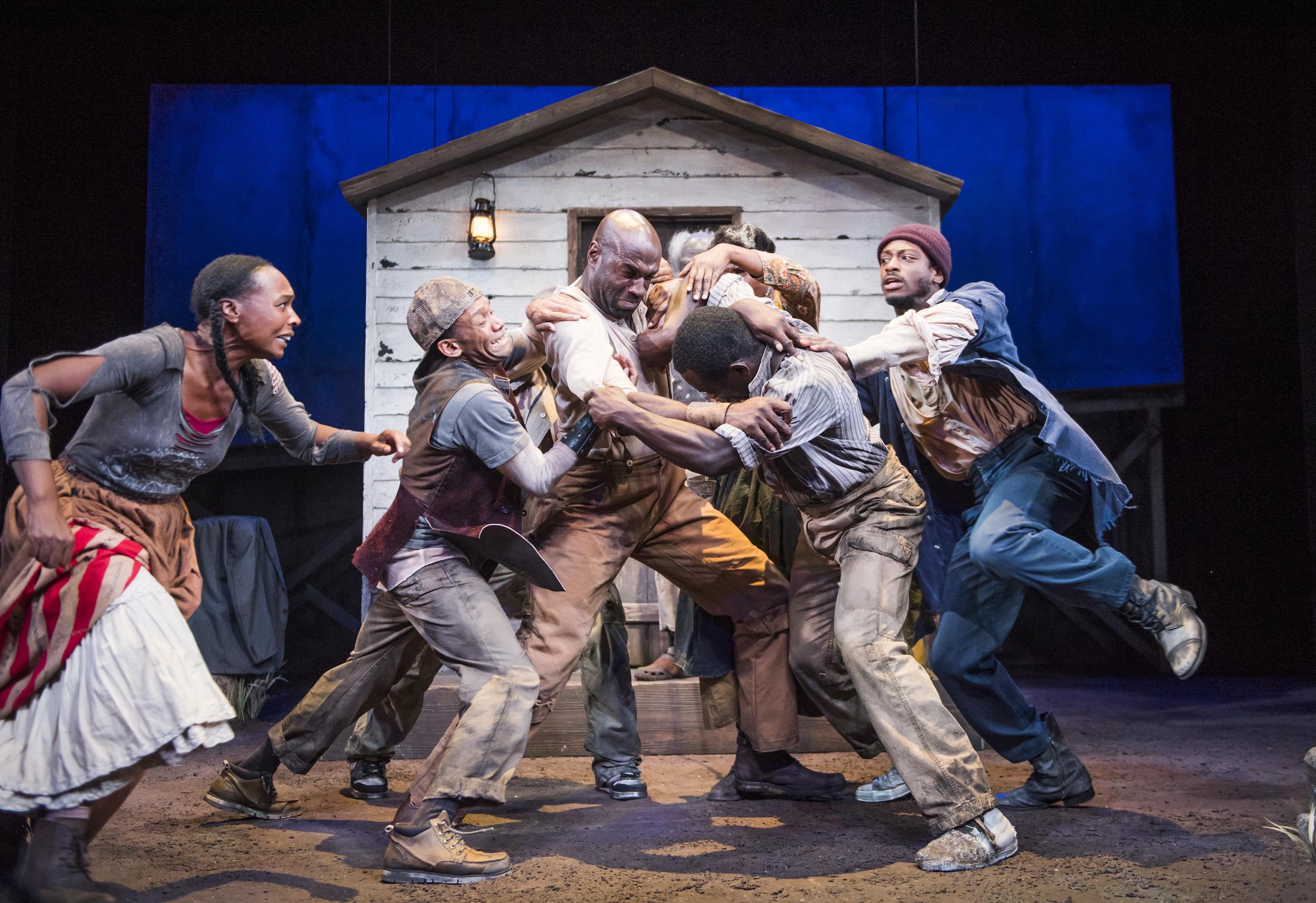Father Comes Home from the Wars (Parts 1, 2 & 3), Royal Court, review: 'Immensely arresting and impressive piece of work'

This is an immensely arresting and impressive piece of work. Suzan-Lori Parks’s trilogy is set during the American Civil War and, over three 50-minute plays, unfolds as a story of race, slavery and what it means to be free.
One of its great achievement is capturing an idiom that can shift with consummate ease between high and low registers, the serious and the irreverent. Park has borrowed her templates from the Odyssey and Greek tragedy with a directness that's refreshingly blunt and playful in its reworking of convention and wholly unburdened by solemnity. It’s a postmodern mash-up rather than, say, Eugene O'Neill’s stately home-from-the-Civil-War play Mourning Becomes Electra, and it has the sharp quality of a fable that will never cease to be timely.
Father Comes Home from the Wars was unveiled at the Public Theatre in New York in 2014. For this first-rate UK premiere, the same director, Jo Bonney, has assembled a superb, largely British ensemble, with Steven Bargonetti (from the original production) strumming his guitar and beautifully singing his own arrangements of the plangent/wry folk songs by Parks that punctuate and underscore the proceedings. The trilogy follows the fortunes of Hero (Steve Toussaint), a slave in Texas. In the first part, “A Measure Of A Man”, it’s 1862 and our protagonist is wrestling with horrible dilemma. Should he do himself a physical injury and so be able to stay at home with his wife Penny (Nadine Marshall) and fellow-slave Homer (Jimmy Akingbola)? Or should he go to war with his Confederate “boss-master”, the Colonel (John Stahl) and fight for the wrong side, on the understanding that, if he survives, he’ll be set free. His friends take bets on what he’ll decide.
When we catch up with him in part two, “A Battle in the Wilderness”, Hero and the Colonel have come adrift from their regiment in the thick of battle and they’ve imprisoned a wounded Union soldier, Smith (Tom Bateman) in a makeshift wooden cage. It’s the Colonel’s idea of a fun way of killing time to force Smith, who’s fiercely anti-slavery, to guess the purchase-price he paid for Hero. Stahl makes your flesh crawl at this preening vain man and his contradictions. He goadingly humiliates Hero in front of Smith and then breaks down in abject tears at the thought it will be worse for him than losing the son who died when he has to free his slave. Then he gets a grip on himself: “I am grateful every day that God made me white”.
There's a brilliantly revealing twist in this section that I must not give away. But I can report that the development helps to bring out Hero’s mixed feelings about his future. The excellent Toussaint captures the character’s massive stoicism and the undercurrents of anxiety and ambivalence. Hero has known where he is with a monetary price: “Seems like the worth of a coloured man, once he's made free, is less than his worth when he’s a slave.”
If this middle section is the most compelling part, the third instalment, “The Union of my Confederate Parts”, is the least satisfactory. Back at the slave cabin in Texas from the first play, Penny turns out not to have kept herself quite as faithful as her Homeric counterpart. There's a “Chorus of Less Than Desirable Slaves”. There's a surreal talking dog – delightfully played by Dex Lee – who combines a new slant on Odysseus’s loyal canine in Homer with a mad parody of those long-winded messengers in Greek tragedy. The cleverly awkward comedy and the lunge into melodrama feel, for a while, rather self-conscious and literary. But you never stop admiring the ambition and creative confidence. There are the first three sections of a projected nine-part epic that will take the story through to the turbulent unfinished business of today. An appetite-whetting start.
Subscribe to Independent Premium to bookmark this article
Want to bookmark your favourite articles and stories to read or reference later? Start your Independent Premium subscription today.

Join our commenting forum
Join thought-provoking conversations, follow other Independent readers and see their replies